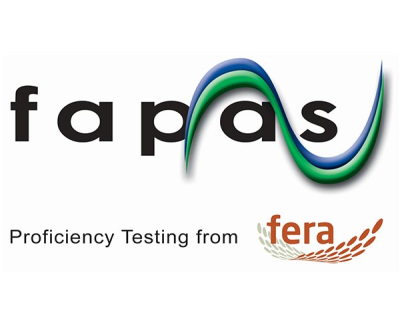MILK (CASEIN) ELISA Kit - 48 wells

PRICE: $395.00
MONOTRACE MILK (CASEIN) ASSAY BACKGROUND
The BioFront Technologies Milk (casein) ELISA Kit is an enzyme-linked immunosorbent assay (ELISA) for the quantitative or qualitative detection of casein in food products. This monoclonal antibody (MAb)-based assay provides a highly sensitive and specific method for the quantification of casein presence/contamination in a variety of food matrices. Casein is a major milk allergen and was selected based on its strong resistance to food processing and high abundance in bovine milk (82%) and a wide variety of milk-derived/containing products. This kit does not detect beta-lactoglobulin, another milk allergen, which represents 20% of total milk protein. Beta-lactoglobulin is enriched to in whey and its purified derivitaves. Although most whey preparations contain trace amounts of residual casein, products made with or containing primarily whey protein (rather than whole milk or purified casein) may have much lower amounts of casein and may, therefore, not be detected by the casein ELISA kit.
MONOTRACE MILK (CASEIN) ASSAY PERFORMANCE
Assay Time: 30 minutes post-extraction
Incubation Times: 10-minute steps for extraction, sample incubation, conjugate incubation, substrate incubation
Number of Tests per Kit: 48
Limit of Detection (casein): 0.11 ppm
Range of Quantification (casein): 0.5 to 8 ppm
Specificity: Bovine casein
THE MONOTRACE ADVANTAGE
BioFront Technologies has developed the first comprehensive line of monoclonal antibody-based ELISA assay kits (MonoTrace ELISAs) for the detection of food allergen contamination in various food samples and on environmental surfaces. The MonoTrace Milk (Casein) ELISA incorporates the use of a precisely defined set of handpicked monoclonal antibodies selected after a rigorous screening process for their ability to:
- Target a highly stable and abundant Milk allergen (casein) resistant to food processing effects
- Recognize a carefully selected target protein to eliminate cross-reactivity and reduce the possibility of 'false positive' results
- Perform well in a wide variety of food products with negligible food matrix interference
CROSS-REACTIVITY
At concentrations as high as 500,000 ppm, no cross-reactivity was observed in a large
panel of assayed samples, including: tree nuts, legumes, seeds, flours (wheat, corn, oat, rice), egg, beef, fish, and crustaceans.
RECOVERY
Recovery of casein-spiked samples was acceptable, according to current AOAC guidelines (J. AOAC Int. 2012), when the following food matrices were assayed: cake mix, corn flour, rice flour, infant soy formula and non-dairy chocolate.
For more details on assay parameters, a full validation report is available upon request.
- Target a highly stable ---- allergen resistant to food processing effects
- Recognize a carefully selected target protein to eliminate cross-reactivity and reduce the possibility of 'false positive' results
- Perform well in a wide variety of food products with negligible food matrix interference
panel of assayed samples, including: tree nuts, legumes, seeds, flours (wheat, corn, oat, rice), egg, beef, fish, and crustaceans.
For more details on assay parameters, a full validation report is available upon request.
THE MONOTRACE ADVANTAGE
BioFront Technologies has developed the first comprehensive line of monoclonal antibody-based ELISA assay kits (MonoTrace ELISAs) for the detection of food allergen contamination in various food samples and on environmental surfaces. The MonoTrace Milk (Casein) ELISA incorporates the use of a precisely defined set of handpicked monoclonal antibodies selected after a rigorous screening process for their ability to:
- Target a highly stable and abundant Milk allergen (casein) resistant to food processing effects
- Recognize a carefully selected target protein to eliminate cross-reactivity and reduce the possibility of 'false positive' results
- Perform well in a wide variety of food products with negligible food matrix interference
CROSS-REACTIVITY
At concentrations as high as 500,000 ppm, no cross-reactivity was observed in a large
panel of assayed samples, including: tree nuts, legumes, seeds, flours (wheat, corn, oat, rice), egg, beef, fish, and crustaceans.
RECOVERY
Recovery of casein-spiked samples was acceptable, according to current AOAC guidelines (J. AOAC Int. 2012), when the following food matrices were assayed: cake mix, corn flour, rice flour, infant soy formula and non-dairy chocolate.
For more details on assay parameters, a full validation report is available upon request.

